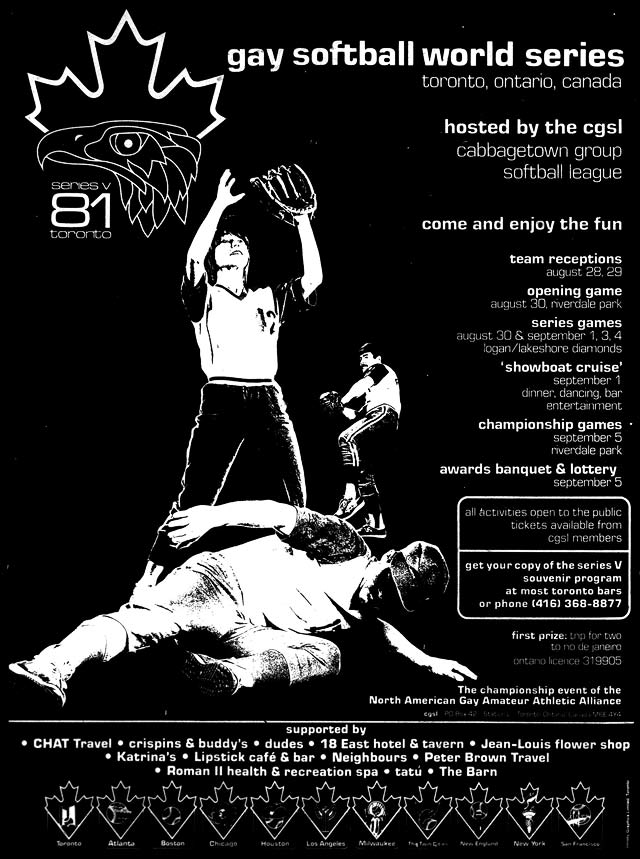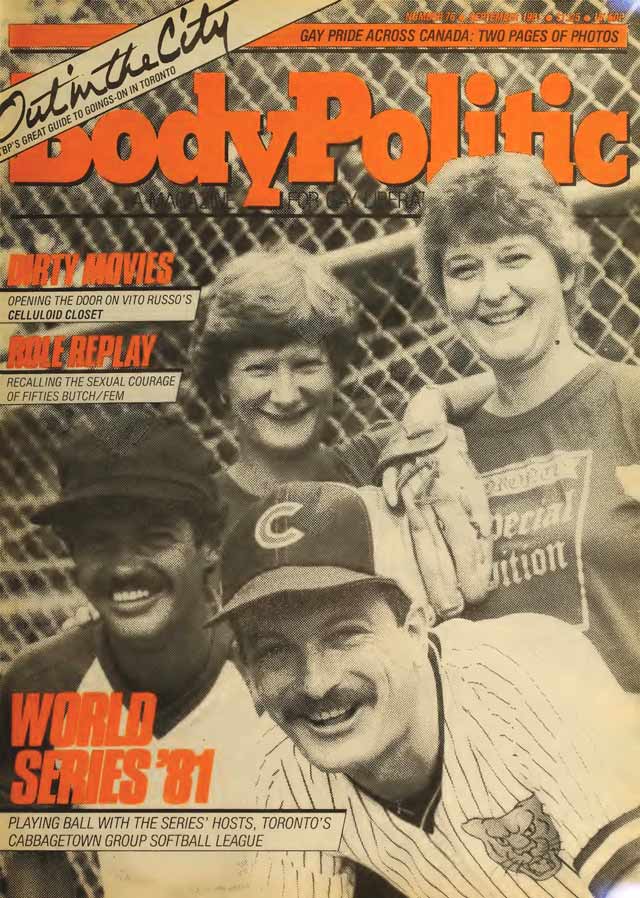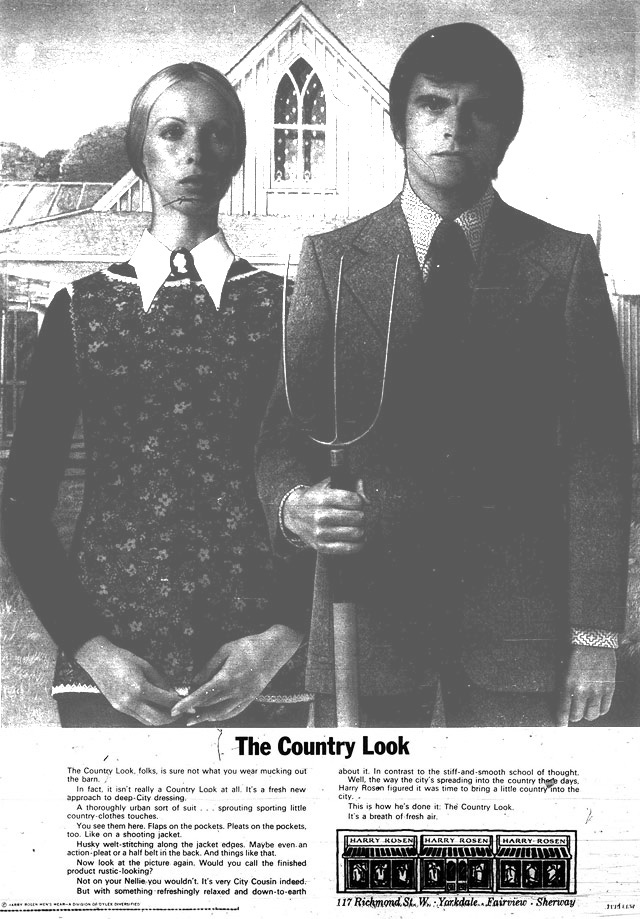Originally published on Torontoist on June 28, 2011.

The Body Politic, September 1981.
If you were a baseball fan in Toronto during the summer of 1981, the best place to catch a game was a neighbourhood diamond. The Blue Jays played so poorly during the first half of the season that when major league players went on strike in mid-June, it was a relief to long-suffering fans (the team lost 11 straight games before the walkout). While the Blue Jays didn’t make it to the World Series, Toronto was home to championship baseball action that October thanks to the effort of the Cabbagetown Group Softball League (CGSL) to bring the fifth edition of the Gay Softball World Series (GSWS) to the city’s east side.

The Body Politic, September 1981.
The CGSL grew out of regular pickup games played Sunday afternoons beginning in 1975. As the Body Politic noted in a September 1981 profile, the evolution from drop-in games to full-fledged league was “shaped by two distinct but connected concerns: how to improve standards of play with without slamming the door on inexperienced players and how public to be as a gay organization.” The league took shape over the winter of 1977–78: four teams were formed, regulations were drawn up, and a diamond was reserved at Riverdale Park. By the time the league hosted the GSWS, 170 players took the field for teams with colourful names like the Zyppers and Mes Petits Choux. For players like social worker/Raw Talent left fielder Morris Berchard, the league gave him “the opportunity to meet gay people with similar interests outside bars. It has given me an appreciation of my gayness.”
Over 300 players from 11 cities participated in the GSWS. Mayor Art Eggleton turned down an invitation to throw the first pitch, sending only a letter wishing tournament organizers “every success.” The local entrant in the GSWS, East Side Story, finished near the bottom of the tournament. Wet weather forced the championship game to be moved to the Logan/Lakeshore diamond. Surprise cheerleading was provided by the local branch of the Sisters of Perpetual Indulgence. “We expected to deal with a lot of fear of effeminacy on the part on some players and fans,” noted Sister Liturgia, “but our appearance produced very little nunophobia.” More than 500 spectators showed up to watch the Los Angeles Griffins defeat the Milwaukee Wreckroom 4-0. At the banquet that followed at the Holiday Inn on Chestnut Street (now U of T’s 89 Chestnut residence), the attendees depleted the hotel’s champagne supply.
Additional material from the September 1981 and October 1981 editions of the Body Politic.

